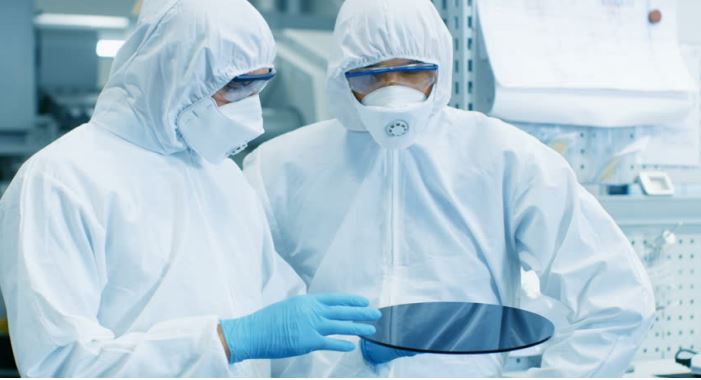ANFORDERUNGEN AN DIE PHARMAZEUTISCHE WASSERQUALITÄT FÜR DIE VERWENDUNG IM REINRAUM
Water is one of the most important operating materials in the pharmaceutical industry. Depending on the intended use, different water qualities are required. Control of water quality, especially microbiological quality, is a major concern. The pharmaceutical industry spends considerable substantial resources on the development and maintenance of water purification systems.
Water for Injection (WFI) is used as an excipient or for reconstitution of products, during synthesis, in the manufacture of the final product, or as a cleaning agent for rinsing vessels, equipment, primary packaging materials, etc. Therefore, sterile water, free from viable impurities, is a prerequisite for the quality of the final pharmaceutical product.
ULTRA PURE WATER
Purified water is water that has been mechanically filtered or treated to remove impurities and make it suitable for use. Distilled water has been the most common form of purified water, but in recent years water is more often purified by other processes, including capacitive deionization, reverse osmosis, carbon filtration, microfiltration, ultrafiltration, ultraviolet oxidation, or electrodeionization.
Combinations of a number of these processes have been used to produce ultrapure water of such high purity that its trace impurities are measured in parts per billion (ppb) or parts per trillion (ppt).
CONTAMINATION CONTROL
New GMP updates described in the EU GMP Annex 1:2021 update urge a complete contamination control strategy for ultrapure water and WFI systems. Monitoring ultrapure water and WFI systems with liquid particle counters (LPC) provides rapid notification of contamination. Continuous sampling in ring systems allows users to be notified immediately when baseline levels rise that can affect product quality and safety. Monitoring points in pre-filter stages can be added to provide earlier indication of failure points for a more robust system that can act as an early warning system.
WHY USE A LIQUID PARTICLE MONITORING SYSTEM?
- Implement real-time contamination control
- Collect basic data and create alarm notifications
- Real-time data to set maintenance strategy
- Maximize system availability and associated cost savings
- Improved quality of the product
- Reliable data to make informed process decisions
- Prevents accidental use of contaminated water
- Easy to install and manage
THE TRUE SENSITIVITY OF THE VERTEX50 LIQUID PARTICLE COUNTER FOR ULTRA-PURE WATER APPLICATIONS IN THE SEMICONDUCTOR INDUSTRY.
Liquid particle counters (LPCs) are widely used in industries where ultra-pure water is required. Both the semiconductor and pharmaceutical industries use ultrapure water for certain procedures used in the manufacturing process steps of their products.
Ultrapure water (UPW) is one of the main materials used in electronics manufacturing and therefore needs to be monitored for critical parameters such as nanoparticles.
In the semiconductor field, it is about the development and manufacturing of solid-state devices, thin-film devices, communication lasers, light-emitting diodes, photodetectors, printed circuits, memory devices, vacuum tube devices or electrolytic devices.
ULTRAPURE WATER MONITORING IN THE SEMICONDUCTOR INDUSTRY

In the semiconductor industry, the true sensitivity of particle measurement in liquids has a direct impact on product yield. The International Technology Roadmap for Semiconductors ITRS aims to share the development of semiconductor technology on an international level.
This specifies the size of contamination particles or concentration limits to be controlled and defines measurement and control points for contaminants in ultrapure water applications. According to the ITRS 2015 report, the number of particles in ultrapure water (UPW) at the point of entry (POE) should be less than 1000 #/L (particles per liter) and 1 #/ml (particles per milliliter), respectively.
As the number of chips per wafer increases, the line widths in the chip circuit become narrower, with line widths now in the single nanometer range. Therefore, Ultra Pure Water monitoring and control is essential for the quality of the product.
Can liquid particle counter manufacturers meet the challenges that come with increasing requirements for detecting smaller particles?
Read more in the following technical paper.






